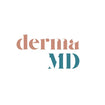Pregnancy and lactation are beautiful phases in a woman's life, but they can also bring about changes in skin and hair that require special care and attention. Hormonal fluctuations during pregnancy can lead to various skin concerns such as acne, pigmentation, and stretch marks, while postpartum hormonal shifts can trigger hair loss. Understanding how to care for your skin and hair during these times is essential for maintaining overall well-being.
During pregnancy, it's crucial to be mindful of the skincare products you use, as certain ingredients may pose risks to the developing baby.
Ingredients to avoid:
Retinoids, Salicylic acid >2%, Hydroquinone, Arbutin, Chemical sunscreens.
Ingredients that are safe:
Physical (mineral based) sunscreens, moisturisers, azelaic acid, niacinamide, vitamin C, Benzyl peroxide, Salicylic acid <1%, Glycolic acid, Lactic acid.
Moisturizing regularly can help alleviate dryness and itchiness associated with pregnancy, while a mineral based sunscreen is essential for protecting the skin from UV damage and preventing the worsening of pigmentation issues. Additionally, maintaining a healthy diet rich in vitamins and antioxidants can support skin health from the inside out.
Stretch Marks:
If you face stretch marks, keep moisturising your tummy, hips and breasts well, with ingredients like centella asiatica, hyaluronic acid, shea butter etc. There is nothing that can prevent stretch marks 100%, but you can try to reduce the chances of getting them or reducing their prominence- IF they bother you. They can also be treated after your lactation stops, with retinoids and procedural treatments such as MNRF. That said, stretch marks tell a story of your journey, so don’t stress too much about them.
Hair Care:
In terms of hair care, many women experience thicker, more luscious hair during pregnancy due to hormonal changes. However, postpartum hormonal shifts can lead to telogen effluvium, a type of temporary hair loss characterized by excessive shedding. While this condition can be distressing, it is usually temporary and resolves on its own within a few months.
To minimize postpartum hair loss, it's essential to maintain a healthy scalp environment through regular cleansing and gentle massaging. Avoiding tight hairstyles that pull on the hair and reducing heat styling can also help prevent further damage. Additionally, incorporating nutrient-rich foods into your diet, such as fruits, vegetables, lean proteins, and omega-3 fatty acids, can support hair growth and overall hair health.
Conclusion:
When it comes to skincare and hair care during pregnancy and lactation, it's always best to consult with a healthcare provider or dermatologist for personalized recommendations. By using pregnancy-safe products and adopting healthy lifestyle habits, women can effectively address common skin and hair concerns while ensuring the safety and well-being of themselves and their babies. Remember, self-care during pregnancy and postpartum is not only about looking good but also feeling good from the inside out.










